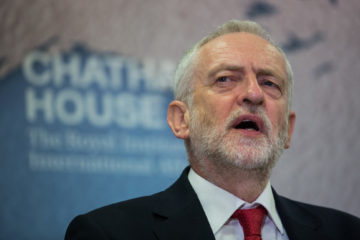Greece – Cyprus – Turkey: A triangle of conflict, nationalism and opportunities
Stavros Stavrikkos, The London Globalist, 2012 Publication
For at least thirty-seven years, Greek and Turkish Cypriots have been separated by an artificial border, known as the ‘Green Line’, running through the island of Cyprus. While the border between Greece and Turkey is a distinct territorial border, comprising largely of the river Maritsa, the border that cuts through Cyprus is as much an emotional one as it is an actual border line. Economically, the borders are differentiated: while trade and tourism from Greece to Turkey and vice versa has been increasing over the past years, there are still no official trade relations between the Cyprus Republic and Turkey. The situation is even more complicated with respect to economic relations between the two Cypriot communities. According to the European Commission: ‘while many people move across the Green Line every day, trade across the line remains limited.’
The state of these borders – territorial, economic and emotional – has always been volatile: as various historical developments have brought the three sides closer or further away. The current situation is no different; while there are some signs of reconciliation between Greece and Turkey, Greek and Turkish Cypriots are far from coming to terms on the Cyprus problem. Add to that the latest major development in the area, the discovery of potentially vast oil and natural gas reserves south of Cyprus, and the complexity of the issue is clear. Yet this geopolitical triangle is not operating in isolation. Greece and Cyprus are members of the EU, Turkey has applied for membership, and the talks in Cyprus are held under the umbrella of the UN. Therefore, more decades of distrust and instability are an unlikely scenario; too many important agents are involved to risk such a status quo. Adding the natural gas variable may make the mix ‘explosive’ but it could be the catalyst for stability. The issue is what type of stability and, more importantly, which of the three agents will get their way. Before answering that question, one must set the historical framework within which these events are taking place.
A bit of history
Whole generations of young people in these three countries have been brought up amidst the ‘blood and fire’ of their turbulent past. Young Greeks are certain to have heard all about the glorious days of Alexander the Great and his advances into Asia Minor (today’s Turkey). Young Turks, on the other hand, will have been filled with pride from an early age about the grandeur of the Ottoman Empire – often at the expense of the Greeks, as the famous siege and capture of Constantinople in 1453 would testify. As far as Cypriots are concerned, they have been largely indulged to the myths of their respective ‘mother-nations’; the nationalists on either side emphasizing different events. The military campaign against the British colonialists at the end of the 1950s was conducted by Greek-Cypriots with a dual aim of removing British rule and pursuing union with the Greek mainland. On the other hand, Turkey’s invasion in 1974 is seen as a ‘peace operation’ by right-wing Turkish-Cypriots; a necessary response to a Greek-Cypriot-led coup. It is thus evident that taking an analytical ‘snapshot’ of the current situation is an incomplete way to evaluate the state of the territorial, economic and emotional borders today. Only with the historical context in place, one can connect the pieces of the past, the present and the future.
The state of the borders today
The territorial borders between these three states have always been contentious. Despite being static in de jure terms ever since the Balkan wars and the subsequent Treaty of Lausanne on population exchanges, as well as after the declaration of Cyprus independence, there are still many disputes in de facto terms. The major being the volatile situation within Cyprus, with only Turkey recognizing an independent Turkish-Cypriot state in the north since 1983, whereas Greece recognizes only the legitimate state of the Cyprus Republic. To add to that, there is a constant dispute between Greece and Turkey over the Aegean Sea, especially during the latter half of the 20thcentury. There are frequent violations of the Greek aerospace over the Aegean Sea by the Turkish air force, while in 1996 an incident regarding the Imia islets brought the two neighbors a step away from ‘hot war.’
Economically, the three countries have been following diverging paths. While Turkey is one of the fastest-growing economies and a member of the G20, Greece finds itself in a continuous socio-economic crisis, caused and exacerbated by a gigantic public debt. Despite this, Turkey’s Prime Minister Tayip Erntogan and (now ex) Greek Prime Minister George Papandreou, have signed several bilateral agreements in the last two years on trade and economic cooperation in general. In Cyprus, trade between the two communities has seen moderate growth, but much of it is either in the context of the ‘informal’ economy or involves around services and thus is harder to quantify. Linguistically, cultural and trust issues all contribute to the Green Line being an economic as well as a territorial border.
Perhaps the hardest barriers to break down in the three countries are the emotional barriers. Caught in vicious cycles of biased history teaching and nationalism-fuelling clergy on both sides, in addition to conflict-seeking media, the majority of the public is under the impression they are genetically programmed to be at odds. With respect to the emotional borders between Greece and Turkey, there has been, at least at high political levels, an effort to get closer. Apart from the various bilateral agreements signed, there were other actions that were designed to symbolize an era of closer ties. An example is the shared bid by the two countries to co-host the European Football Championships in 2008, eventually losing out to Austria and Switzerland.
With regards to Cyprus, an important development occurred in 2003. After almost thirty years, the artificial border running through the island was ‘opened’ at certain checkpoints. The response was mixed; while it did bring some people from the two communities closer it also made many (Greek-Cypriots particularly) disillusioned with the homes they left behind. Given the vicious cycles described and the socio-political circumstances within this triangle, finding common ground has been an elusive effort. Nevertheless, finding common natural resources is a more realistic development and it is worth examining its impact.
Future prospects: will natural gas annihilate or fortify these borders?
It was suggested for a number of years that this part of the Mediterranean Sea holds vast amounts of natural gas; a claim verified by recent exploratory investigations in the area between Cyprus and Israel. The picture is further complicated because of the strategic location of Turkey with respect to two key proposed natural gas pipelines: Nabucco and South Stream. The former is an effort to lessen European dependence on Russian energy, a response to the latter: a route transporting Russian natural gas via the Black Sea to Bulgaria and further to Greece, Italy and Austria. The importance of such projects cannot be understated as the EU’s growing energy demands, its environmental commitments and the volatility of oil prices make natural gas very attractive.
In autumn 2011, the American energy giant Noble Energy started drilling the area between Cyprus and Israel to determine how much natural gas lies there exactly. Whatever the final figure, the estimates are in the region of hundreds of millions. Of course this has angered Turkey, which does not recognize the Cyprus Republic and hence its rights as a sovereign state. In fact, Cyprus has been quick to take advantage of the currently ‘cold’ Turkish-Israeli relations and has forged close ties with Israel. Cypriot President, Demetrios Christofias, told the UN general assembly this September that the natural gas belongs to all Cypriots, Greek and Turkish. He added that when a comprehensive solution is achieved, Turkish-Cypriots will enjoy the merits of the new-found wealth as well.
However, it is not clear as to which direction the discovery of natural gas will shift the balance in this geopolitical triangle. A possibility is that it will be a catalyst to the re-unification of Cyprus as both communities will be eager to foster a stable environment for the rents from natural gas export to be invested. It could be even the case that Cyprus’ natural gas reserves enter the wider strategic game of the Nabucco and South Stream pipelines. This way, Turkey and Greece too, will have vested interests to maintain stability in the area. The other scenario is that natural gas will be a source of further tension. Turkey has been threatening direct action if Cyprus goes ahead with its bilateral agreements with Israel and extracts the natural gas. Within the island, many (Greek-Cypriot) circles will think of the newfound wealth as a disincentive to come to an agreement, as a solution will inevitably come with risks and uncertainties. If history is any guide, the likelihood of nationalistic cycles and populist arguments prevailing over a pragmatist approach to natural gas’ prospects is quite probable.
Moving Forward
Territorially, economic and emotional borders have separated the peoples of these countries for hundreds of years. Their tumultuous past is not forgotten and many issues remain unresolved; yet what follows is an example of how detached from reality these rivalries sometimes are. Greeks refuse to call Istanbul with this name for emotional reasons, instead preferring the Greek-sounding original name of Constantinople. In fact, ‘Istanbul’ could not have been more Greek-related since it is derived from the Greek phrase “εις την Πόλιν” [istimbolin], meaning “in the City.” This is just one example of how their pasts are inextricably linked. Turkey’s biggest city, a thorn in their historical relations since 1453 and the source of contemptuous comments by the Turks to their neighbors for its acquisition, carries a Greek name until today. Yet, economically, the Cyprus Republic recently borrowed electricity supply from the northern part due to an explosion which destroyed its biggest power-plant. In reality, the Turkish-Cypriots did not simply lend electricity supply, they sold it. Nevertheless, this economic transaction was also based on humanitarian terms, as it was an emergency situation for Greek-Cypriots and their economy. It demonstrated that cooperation can be achieved when there is incentive-alignment.
On the other hand, the latest round of talks has yet to produce many concrete results, and the two communities are drifting further apart as time goes by. Some analysts believe 2012 will be the ‘make-or-break’ year for the Cyprus problem to be resolved as an agreed federal state. The ‘manna from heaven’ (the discovery of natural gas) brings with it exciting opportunities as well as deleterious prospects. The propensity of the Greek and Turkish politicians hitherto has been to ignore the former and engage with the latter. The only hope is that the direct involvement of strategic players like US companies and the EU in this matter will push the two Cypriot communities towards finding a solution. Ironically, the ‘economic’ chapter is one of the few that has been resolved in the negotiations and the ‘territorial’ adjustments to be made are more or less established. Thus, what is left is for the ‘emotional’ borders to be torn down in order to give the process the necessary momentum to reach an agreement. If only it was as easily done as said.


